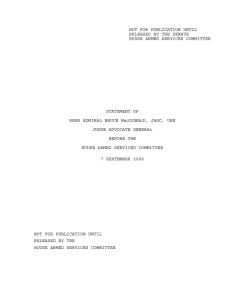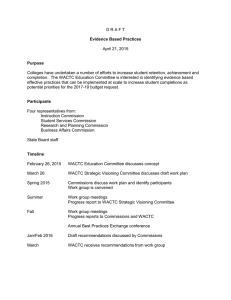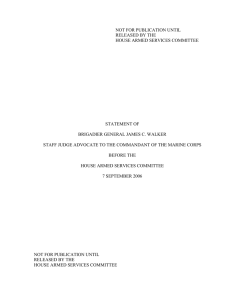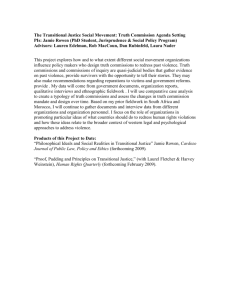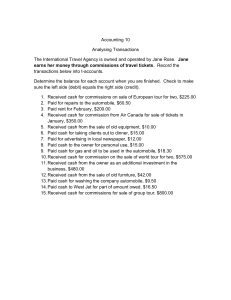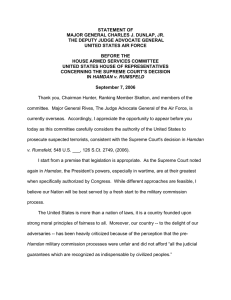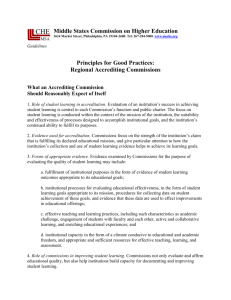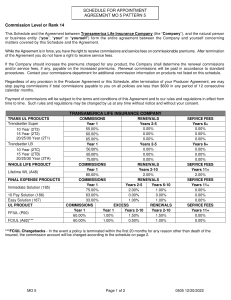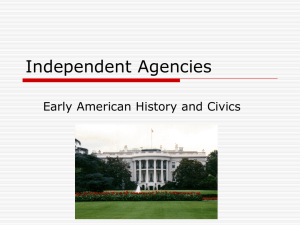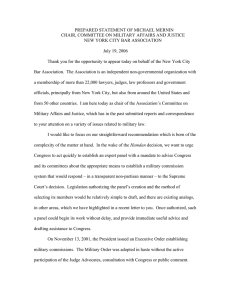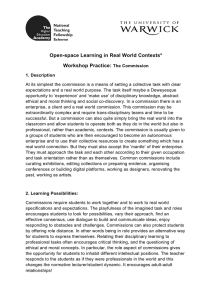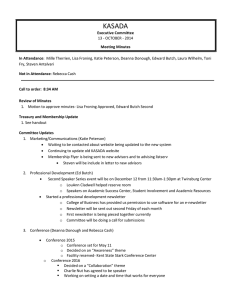RECORD VERSION STATEMENT BY MAJOR GENERAL SCOTT C. BLACK
advertisement
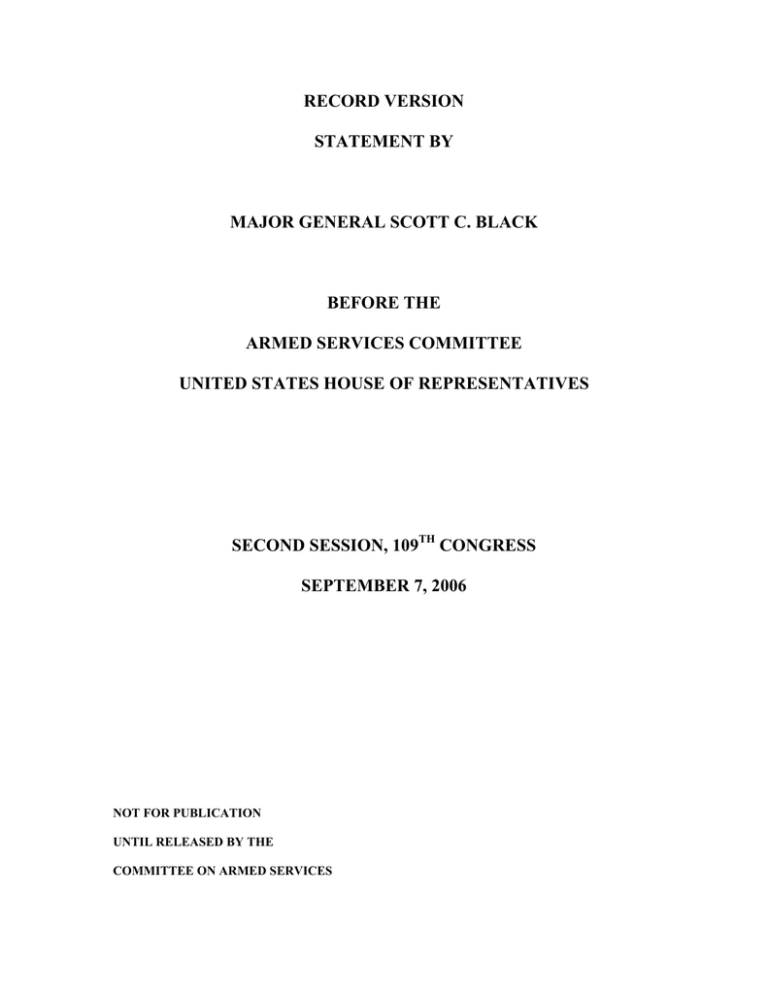
RECORD VERSION STATEMENT BY MAJOR GENERAL SCOTT C. BLACK BEFORE THE ARMED SERVICES COMMITTEE UNITED STATES HOUSE OF REPRESENTATIVES SECOND SESSION, 109TH CONGRESS SEPTEMBER 7, 2006 NOT FOR PUBLICATION UNTIL RELEASED BY THE COMMITTEE ON ARMED SERVICES Thank you, Mr. Chairman, Ranking Member Skelton and members of the committee. I'd like to thank you for the opportunity to appear before you today and for the committee's timely and thoughtful consideration of these significant issues. I'd also like to express my heartfelt gratitude to the members and staff of this committee for your continuing hard work on behalf of the Army's Soldiers, civilians and family members. We really do appreciate what you do each and every day. At the outset, I will tell you that military commissions, in some form, are a necessary forum for the trial of enemy combatants captured in the Global War on Terrorism. They are legally viable and pragmatically vital. They allow us to maintain the maximum flexibility in coping with those combatants we find on the current battlefield. Military commissions are well grounded in history and the Uniform Code of Military Justice and provide an indispensable tool to ensure justice under the rule of law. The Hamdan decision has reinforced our need to ensure military commissions are reflective of American values such as due process and the rule of law. Our task is to balance the utility of the military commissions with these values that are foundational to our democratic society. We have been working within the Government to assemble a product that will do this—that will not only protect this great nation from those who are committed to destroy it, but that will simultaneously uphold the principles that distinguish this nation from those who attack it. Current military commission procedures reflect a good start, but we can make the system better. While still maintaining the utility and flexibility of military commissions, we can utilize principles and provisions from the Uniform Code of Military Justice. We 1 also can and should borrow from other sources, such as international law, including the international criminal tribunals when it is appropriate to do so. By doing so, we can create what I believe would be a perfect blend of rights and responsibilities that would make us, literally, the envy of not only the people of our country but the people in the world in terms of the judicial process. We are prepared to work together with the Congress and look forward to being participants in the process of creating such a system. 2
